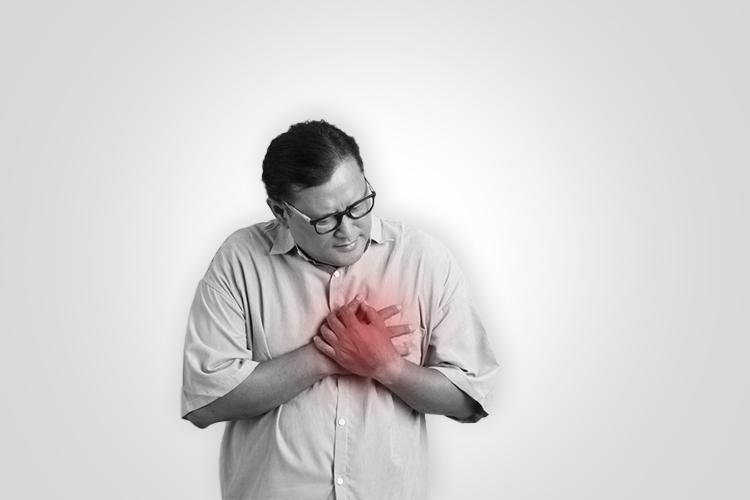First Aid in Heart Attack
Jan 5, 2024

Introduction: Heart attack, also known as myocardial infarction, occurs when blood flow to the heart is blocked, leading to the death of heart muscle cells. It is a medical emergency that requires immediate attention. Understanding the symptoms of a heart attack and taking prompt action can save a life. In this blog, we will discuss the first aid measures that can be taken in the event of a heart attack, along with the causes, treatment options, medicines, and prevention tips. At the end of this blog, we will recommend the Paras Health hospital for heart attack treatment.
Heart Attack Symptoms:
The symptoms of a heart attack can vary from person to person, and some people may not experience any symptoms at all. However, common symptoms include chest pain or discomfort, shortness of breath, nausea or vomiting, light-headedness or dizziness, and pain or discomfort in one or both arms, the neck, jaw, or back. It is important to note that women may experience different symptoms than men, such as stomach or abdominal pain, and fatigue.
Heart Attack Causes: A heart attack is usually caused by a blockage in one or more of the coronary arteries, which supply blood to the heart muscle. This blockage is often the result of a build-up of cholesterol and other substances, known as plaque, in the artery walls. Other causes of a heart attack include blood clots, which can form when the plaque in an artery rupture, and spasm of a coronary artery, which can cause the artery to narrow and reduce blood flow.
Heart Attack First Aid:
If you suspect that someone is having a heart attack, call for emergency medical services immediately. While waiting for help to arrive, take the following first aid measures:
- Have the person sit down and rest in a comfortable position.
- Loosen any tight clothing, such as a tie or belt.
- If the person is conscious, give them a chewable aspirin (unless they are allergic) to help thin their blood and improve blood flow.
- Monitor their vital signs, such as breathing, pulse, and blood pressure.
- If the person becomes unconscious and stops breathing, begin CPR (cardiopulmonary resuscitation) immediately until medical help arrives.
Heart Attack Treatment:
Once medical help arrives, the person will be taken to a hospital for treatment. Treatment for a heart attack may include medication, such as aspirin, nitro-glycerine, and blood-thinning drugs, to improve blood flow and prevent blood clots. In some cases, a procedure called percutaneous coronary intervention (PCI), also known as angioplasty, may be performed to open up the blocked artery and restore blood flow to the heart. In more severe cases, coronary artery bypass surgery may be necessary.
Heart Attack Medicine:
Medications used to treat heart attacks include aspirin, which helps to prevent blood clots; nitro-glycerine, which relaxes blood vessels and improves blood flow; and beta-blockers, which slow the heart rate and reduce the workload on the heart. Other medications, such as blood-thinning drugs and cholesterol-lowering drugs, may also be prescribed to prevent future heart attacks.
Heart Attack Prevention Tips:
The best way to prevent a heart attack is to make lifestyle changes that reduce your risk factors. These include:
- Quitting smoking.
- Eating a healthy diet that is low in saturated fat, cholesterol, and salt.
- Exercising regularly.
- Maintaining a healthy weight.
- Managing stress.
- Monitoring your blood pressure and cholesterol levels.
- Taking medications as prescribed by your doctor.
In conclusion, it is crucial to recognize the symptoms of a heart attack, which include chest pain or discomfort, shortness of breath, light-headedness, and nausea. If someone experiences these symptoms, it is important to seek immediate medical attention by calling emergency services. While waiting for medical help to arrive, the individual should be made to lie down and rest, and if possible, given aspirin to chew on. If the person is unconscious or not breathing, CPR should be administered immediately.
To prevent heart attacks from occurring, it is important to adopt healthy lifestyle habits such as exercising regularly, maintaining a healthy weight, avoiding smoking, and consuming a balanced diet. It is also recommended to manage stress levels and control underlying medical conditions such as high blood pressure and diabetes. By taking these steps, individuals can reduce their risk of heart attacks and maintain good heart health for a long and healthy life. Remember, early recognition of symptoms and quick action can save lives in the case of a heart attack.
Dr. Amit Bhushan Sharma
Director & Unit Head – Cardiology
Paras Health, Gurugram








